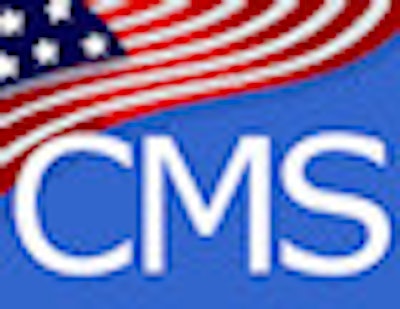
The California Dental Association (CDA) has joined forces with the California Medical Association (CMA), the California Pharmacists Association (CPhA), and the National Association of Chain Drug Stores in a federal lawsuit against the California Department of Healthcare Services (DHCS) and the U.S. Department of Health and Human Services protesting proposed cutbacks to the state's Medicaid reimbursement system.
The suit, filed November 21 in the U.S. District Court for the Central District of California, is in response to the Centers for Medicare and Medicaid Services' (CMS) recent approval of a 10% reimbursement rate cut in California's Medicaid program, Medi-Cal.
"In late September, the CMS asked DHCS for more information that would substantiate its state plan amendments (SPAs) for cuts in the Medi-Cal program. Without receiving that information, CMS went ahead and approved the cuts before them," Francisco Silva, CMA general counsel and vice president, stated in a news release. "It is clear that CMS did not follow protocol and applied the wrong legal standard. The approval of the SPAs will have dramatic affects on access to healthcare for the poorest, most vulnerable Californians."
“More cuts to children's services are unconscionable.”
— Dan Davidson, DMD, CDA president
Earlier this year, in a budget-cutting move, Gov. Jerry Brown signed AB 97, which included a 10% Medi-cal reimbursement rate cut. The federal government approved the rate cuts on October 27. Federal approval was required before the state can implement its proposed cuts.
The cuts, which will save the state $623 million, would impact outpatient services for physicians, dentists, clinics, optometrists, medical equipment, laboratories, and pharmacies. California spends $14 billion annually on the Medi-Cal program.
Medi-Cal currently provides dental benefits to 6.9 million people through a contract with Delta Dental of California. In 2009, the state eliminated most adult Denti-Cal services except for pregnant women and some emergency situations.
While children's services are exempt from the newest round of Medi-Cal cuts, the exemption applies only to medical services, not dental, according to the CDA.
"While the rate cuts exempted children’s medical providers, including clinics due to existing access difficulties, rates paid to dentists are subject to the cuts," noted ChildrenNow in a November 22 letter to Toby Douglas, director of the DHCS, that was signed by nearly a dozen related healthcare organizations. "This action by the Administration continues to batter the already fragile safety net of Denti-Cal providers for millions of children who require adequate access to oral health care."
By law, the state is required to submit underlying documents to CMS clearly documenting that access to care for Medi-Cal patients would not be impacted by the state plan amendments. The lawsuit filed November 21 challenges the adequacy of the information provided by the state to support the cuts.
"CMS’ decision simply defies reason and logic," the lawsuit states. "It strains credulity to its breaking point to accept that a 10 percent cut to rates that have already caused significant gaps in access for Medi-Cal beneficiaries will not have any adverse impact on provider participation levels in Medi-Cal."
The plaintiffs believe this latest attack on the already inadequate Medi-Cal network of dental care will result in further hindrance of dentists' ability to provide appropriate care.
"The state's elimination of adult dental services in 2009 was devastating to low-income Californians," said Dan Davidson, DMD, president of the CDA. "More cuts to children's services are unconscionable."
The information that CMS relied on to approve the state's cuts do not measure whether and how patients' access to care would be impacted or otherwise take into consideration, as required by law, the costs to provide the care, according to the CDA. In fact, a recent poll and independent studies show that access to care is already unequal, making the recent cuts illegal by federal standards.
Because California Medi-Cal rates are already extremely low, many providers cannot afford to participate. Kaiser State Health Facts lists California as the lowest reimbursed state in the nation. The co-payments and arbitrary limits on services will create additional barriers for sick, vulnerable patients seeking care and, ultimately, they will be forced to delay care or use emergency rooms for basic health services, according to the CDA.
CMA, CPhA, and CDA successfully sued in the past to enjoin prior Medi-Cal cuts and expect to demonstrate once again that federal law, which ensures that Medi-Cal patients have equal access to healthcare, was not followed.



















